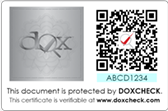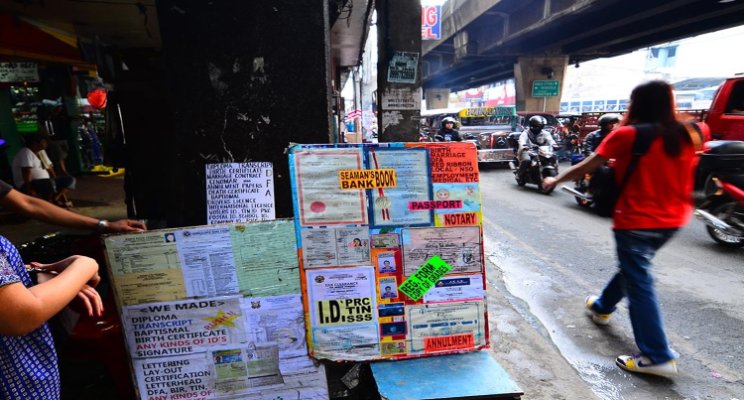Back in college, I have had friends who made business out of making thesis papers for other people. For every thesis paper they create, they get paid around PHP3,000 to PHP5,000 (US$60-US$100). I also know of people who pay to doctor documents like receipts to get a kick back from their tuition or monthly allowance. It has been almost a decade since, and nothing has changed. In the Philippines, forging documents is even more rampant than ever (watch this video).
Popularly known as the Recto University, Claro M. Recto Avenue, is a place in Manila infamous for being a one-stop shop for any fake document imaginable; from school or government IDs, to licenses, diplomas, transcripts, receipts- name it, they have it.
As there is tight competition in the job market, many applicants turn to counterfeiters such as those in Recto University to spruce up their credentials. They can be a graduate of any degree of their choice as Recto offers a wide range of templates of diplomas from different universities. From an article, I read by Mr. Robert Garcia, Recto University is not only limited to schools in Metro Manila. There are also copies of diplomas from schools in Visayas and Mindanao. The Philippines Information Agency (PIA) released this news last year. “Five fake professionals – a medical technologist, a criminologist, a civil engineer and two teachers-- were recently convicted by the courts.” Imagine someone who is checking your medical records, protecting you, building structure, or who teaches our youth, they are all not trained, failed their licensure exams, these people are who we depend on and they are not who they claim to be.
I wanted to check if this is common in other countries as well. CareerBuilder conducted a survey in 2014. In the U.S. 58 % of hiring managers said they have caught a lie on resume. 33% of these employers have seen an increase in resume embellishments post-recession.
With this alarming issue of credential fraud, it is high time that institutions take vital measures to fight the problem. According to Maxmilian Wechsler, institutions are doing various measures to fight credential fraud. Most companies are hiring vetting services to carefully verify documents job seekers provide. Most schools and universities also use special papers with various security features such as hologram threads, watermark, dry seal, etc. to make sure that outgoing documents are authenticated. The problem with this is that these security features may be useless if employers and other verifiers don’t have the equipment to inspect the authenticity of these documents. Furthermore, technological advancements have made it easier for fraudsters to produce exact replica of high-value documents amplifying the challenge of distinguishing from the original if a person does not have knowledge or the right equipment.
In another article by David Tobenkin, the prevalence of credential fraud posts a threat on legitimate academic institutions and the public. Credential fraud damages the reputation and integrity of legitimate schools and universities. More alarming is when job seekers get past employers with fraudulent degrees. This is especially true with professions such as medicine. They are getting hired for the skills they don’t have and this puts the public at risk.
I’m leaving you with this news report about a British reporter getting a fake nursing license in the infamous Recto University.
Madel Sebastian





